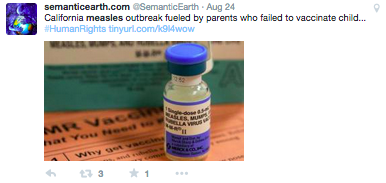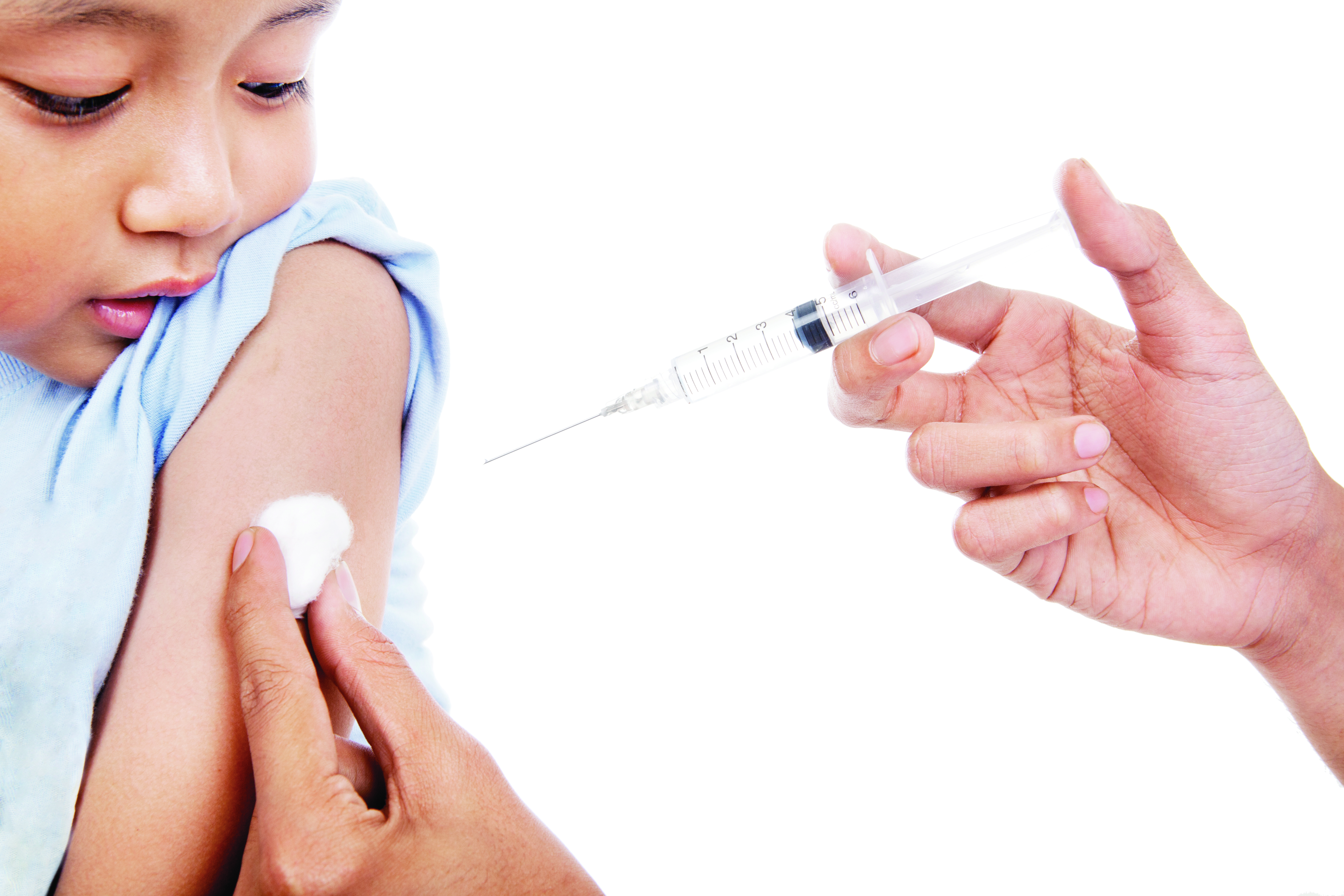CALIFORNIA—In June 2015, California passed a new law requiring children to be vaccinated against high-risk infectious diseases. Starting July 1, 2016, all children, 18 months or older, enrolled in public or private schools or in daycare facilities will be required to be vaccinated against whooping cough, measles, poliomyelitis (polio), diphtheria, tetanus, varicella (chickenpox), haemophilus influenza type B (Hib), mumps, and hepatitis B.
The National Vaccine Information Center (NVIC) website states that, “On June 30, 2015, Governor Brown signed SB 277 [indicating] personal and religious belief exemptions will not be allowed in California, effective July 1, 2016.”
Due to public health and safety regulations, the state of California denied all exemptions unless the child possesses one or multiple medical conditions that would make vaccinations potentially harmful. An additional acceptable exemption is “if a parent files a letter or affidavit stating beliefs opposed to immunization prior to Jan. 1, 2016 that exemption will apply until the next grade span.”
A recent newsletter sent by the NVIC indicated that California “stood alone in the minority” of mandating vaccinations, and denying religious or personal exemptions. California is currently one of 11 states that has required vaccinations for children.

Photo courtesy of semanticearth.com @semanticearth via Twitter.
Cause for Re-Evaluation
The update and enforcement of this new law stems from the Disneyland outbreak of measles that surfaced in December 2014 that infected 131 people in California, as well as 16 out-of-state residents. Nearly all of those infected had not been vaccinated; 25 people were hospitalized as a result of the viral contraction.
The Center for Disease Control (CDC) recognizes measles as “the most deadly of all childhood rash or fever illnesses.” It is a highly contagious disease that can remain contagious when airborne for up to two hours. Vaccinations are approximately 99 percent effective against measles, but those who have been vaccinated still hold a risk of contracting the disease.
This legislation has stirred statewide backlash of opposition from the anti-vaccination community, including parents who believe it is their right to decide whether they wish to vaccinate their children.

Origins of Controversy
In 1998, Dr. Andrew Wakefield published a study on The Lancet from conducting research to prove that there could be a potential connection between vaccinations and developmental disorders in children, which has been categorized as autism.
Wakefield began a study with 12 children between the ages of 3 and 10. According to his findings and accounts from the childrens’ parents, Wakefield reported that the “onset of behavioral symptoms was associated with measles, mumps, and rubella vaccination.”
Researchers later found that Wakefield’s findings were falsified based on incorrectly reported data. Wakefield’s paper was consequently retracted by The Lancet, and he lost his medical license. The idea of vaccinations causing developmental issues has remained an issue due to autism statistics on the rise.
The Parents’ Choice
Jessica Smith is the mother of a four-year-old boy, and they live in the Northern California region and will be impacted by the 2016 vaccination laws. Smith is an advocate of allowing parents to have the option of making informed decisions before committing to a decision to vaccinate their children. In a recent interview, Smith spoke with The San Francisco News about an incident that hospitalized her son and changed her mind about mandatory vaccinations.
When Smith’s son, Anthony, was 14-months-old, she took him into a pediatric clinic to have him begin his vaccination schedule. Smith recalls that despite her request to only give her son a limited number of vaccinations, “the doctor and nurses pressured me into many vaccinations to ‘catch him up.’ He received the varicella (chicken pox), pneumococcal, MMR, Hep A, and influenza vaccinations.”
Smith stated that “within two hours of his appointment, Anthony’s legs were swollen. He was crying uncontrollably for nearly three hours, and he turned bright red; his skin burned to the touch and his fever was peaking at 105.” Smith rushed her son into the emergency room where he was given Tylenol and juice. She was told that her son had probably contracted “something viral,” and they were sent on their way.
Since the incident, Smith has chosen not to vaccinate her son, and believes that it is a parent’s right to decide what is put into their child’s body. Smith stated, “This is more than being ‘pro-vac’ or ‘anti-vac.’ This is about parental rights; this is about pharmaceutical industry accountability, and government transparency.”
Smith’s personal opinion and decision is commonly shared by many other parents who believe vaccinations to be a greater risk of harm than health. There has been no conclusive research that has proven a direct correlation between vaccinations and developmental disorders.
Smith’s experience with her son and personal opinion are commonly shared by other parents, and the widespread belief that vaccinations are a greater risk of harm than health. Though the topic and outcome of vaccination immunization will vary from person-to-person, the state mandated vaccination law taking effect in 2016, has impacted the viewpoints between the pro versus anti-vac population that will continue to debate the issue.






